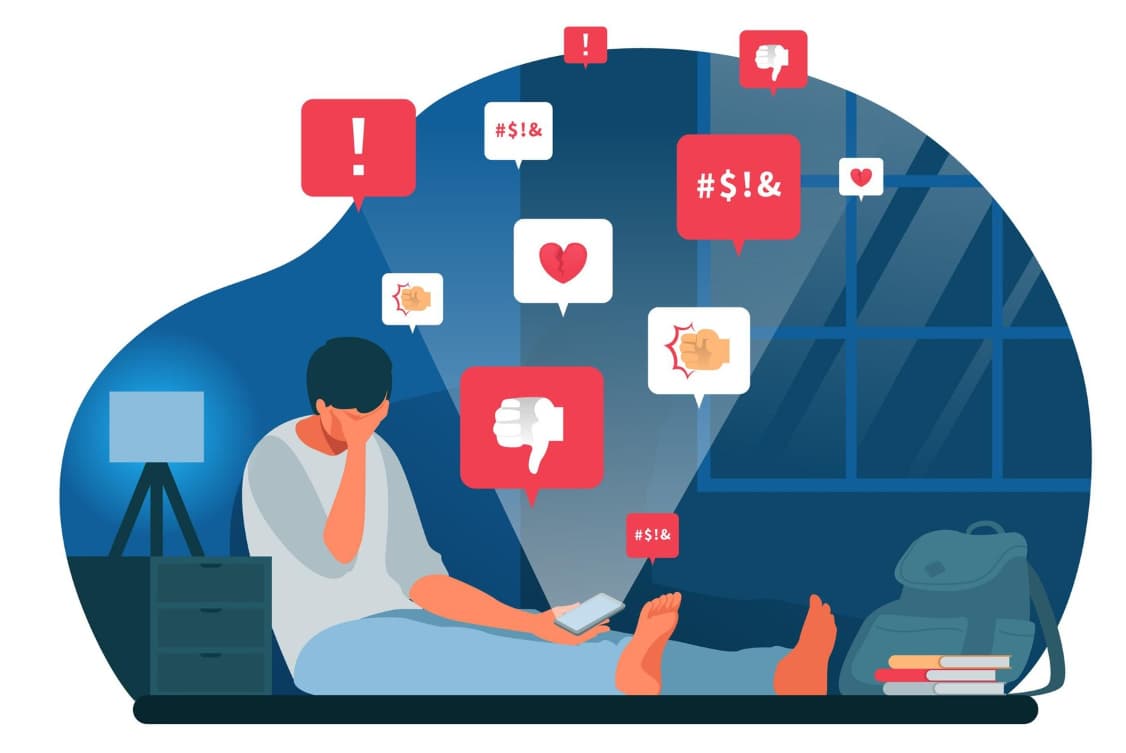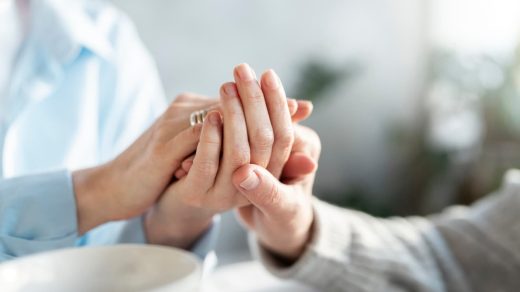Hey there! Let’s talk about something that’s become a big part of our lives: social media. These days, it seems like everyone’s scrolling through their phones, sharing posts, and checking likes.
But have you ever stopped to think about how all this online stuff might be affecting our minds?
The Impact of Social Media on Mental Health

In this article, we’re going to take a good look at social media and mental health issues. We’ll explore the good, the bad, and everything in between.
By the end, you’ll have a better idea of how these digital platforms can impact our well-being, and what we can do to stay healthy in the online world.
So, grab a comfy seat, and let’s dive into the world of likes, shares, and mental health!
The Rise of Social Media
Before we jump into the nitty-gritty, let’s take a quick trip down memory lane. Remember the days when MySpace was all the rage? Or when Facebook was just for college students? Well, those days are long gone!
A Brief History
- 2003: MySpace launches
- 2004: Facebook is born (but only for Harvard students at first)
- 2006: Twitter takes flight
- 2010: Instagram joins the party
- 2011: Snapchat appears on the scene
- 2016: TikTok starts getting the world dancing
Social Media Today
Fast forward to now, and social media is everywhere. It’s hard to imagine life without it. Let’s look at some mind-blowing numbers:
- Over 4.7 billion people use social media worldwide
- The average person spends about 2 hours and 27 minutes on social media every day
- Facebook still leads the pack with over 2.9 billion monthly active users
- TikTok has taken the world by storm, with over 1 billion active users
Part of Our Daily Lives
Social media has become as normal as brushing our teeth. We use it to:
- Stay in touch with friends and family
- Share our thoughts and experiences
- Keep up with news and trends
- Find entertainment and funny cat videos
- Connect with people who share our interests
But with all this online activity, it’s important to think about how it affects our minds. That’s where the link between social media and mental health comes in.
The Good Stuff: Positive Impacts of Social Media on Mental Health
Alright, let’s start with the bright side. Social media isn’t all doom and gloom. It can have some pretty awesome effects on our mental well-being. Let’s check out some of the good things:
1. Staying Connected
One of the biggest perks of social media is how it helps us stay in touch with people. Whether it’s your cousin in another country or your best friend from high school, social media makes it easy to keep those connections alive.
- Video calls make us feel closer to loved ones
- Group chats help us plan events and share laughs
- Online communities bring together people with similar interests
All these connections can be great for our mental health. It helps us feel less lonely and gives us a support system, even when we’re far apart.
2. Information at Our Fingertips
Social media is like a giant library that fits in your pocket. It’s packed with info on all sorts of topics, including mental health.
- Mental health organizations share helpful tips and resources
- Experts offer advice and insights
- Personal stories from others can make us feel less alone
Having all this information readily available can help us learn more about mental health and find support when we need it.
3. A Place to Express Yourself
Social media gives us a platform to share our thoughts, feelings, and experiences. This can be good for our mental health.
- Blogging or posting about our experiences can be therapeutic
- Sharing artwork or music lets us express our creativity
- Joining discussions on important topics helps us feel heard
Being able to express ourselves freely can boost our self-esteem and help us feel more confident.
4. Spreading Awareness
Social media has played a big role in increasing awareness about mental health. It’s helped to:
- Break down the stigma around mental health issues
- Encourage conversations about mental well-being
- Promote mental health campaigns and initiatives
By bringing mental health into the spotlight, social media has made it easier for people to talk about their struggles and seek help.
5. Finding Support
When times get tough, social media can be a lifeline. It connects us with:
- Support groups for specific mental health conditions
- Helplines and crisis resources
- People who understand what we’re going through
Knowing that help is just a click away can be comforting.
So, as you can see, social media isn’t all bad news for our mental health. It has the power to connect us, inform us, and support us in ways that weren’t possible before. But of course, there’s always another side to the story. In the next section, we’ll look at some of the not-so-great effects social media can have on our minds. Stay tuned!
The Dark Side: Negative Impacts of Social Media on Mental Health
While social media has its perks, it’s not all sunshine and rainbows. There are some downsides that we need to talk about. Let’s dive into the ways social media can sometimes mess with our heads.
1. The Comparison Game
One of the biggest issues with social media is how it makes us compare ourselves to others. We see:
- Perfect vacation photos
- Exciting job announcements
- Happy couple selfies
- Fitness transformation posts
It’s easy to forget that people usually only share their best moments online. This can lead to:
- Low self-esteem: Feeling like we’re not good enough
- Jealousy: Wishing we had what others seem to have
- Unrealistic expectations: Thinking life should always be perfect
Remember, what we see online is often just a highlight reel, not the whole story.
2. Cyberbullying: The Online Bully
Unfortunately, social media has given bullies a new playground. Cyberbullying can take many forms:
- Mean comments
- Spreading rumors
- Sharing embarrassing photos
- Excluding someone from online groups
The effects of cyberbullying can be serious:
- Anxiety and depression
- Low self-esteem
- Feelings of isolation
- In extreme cases, thoughts of self-harm
The 24/7 nature of social media means that for some, there’s no escape from bullying.
3. FOMO: Fear of Missing Out
Ever felt like everyone’s having fun without you? That’s FOMO, and social media can make it worse.
- Seeing friends at parties you weren’t invited to
- Watching others enjoy experiences you can’t afford
- Feeling left out of inside jokes or conversations
FOMO can lead to:
- Anxiety: Constantly worrying about what we’re missing
- Decreased life satisfaction: Feeling like our own lives aren’t exciting enough
- Increased social media use: Checking platforms more often to stay “in the loop”
4. The Addiction Trap
Social media can be seriously addictive. The constant stream of new content, likes, and notifications keeps us coming back for more. Signs of social media addiction include:
- Checking social media first thing in the morning and last thing at night
- Feeling anxious when you can’t access your accounts
- Neglecting real-life responsibilities to spend time on social media
This addiction can lead to:
- Decreased productivity
- Neglected relationships
- Poor sleep habits
- Increased stress and anxiety
5. Sleep Struggles
Speaking of sleep, social media can mess with our sleep patterns. Here’s how:
- Blue light from screens can disrupt our natural sleep-wake cycle
- Late-night scrolling cuts into our sleep time
- Stimulating content can make it hard to relax and fall asleep
Poor sleep can lead to all sorts of problems:
- Mood swings
- Difficulty concentrating
- Weakened immune system
- Increased risk of depression and anxiety
6. Anxiety and Depression
Social media use has been linked to increased rates of anxiety and depression, especially in young people. This can be due to:
- Constant comparison with others
- Cyberbullying
- Information overload
- Pressure to always be “on” and responsive
7. Body Image Issues
Social media is full of filtered photos and unrealistic body standards. This can lead to:
- Poor body image
- Eating disorders
- Low self-esteem
- Unhealthy dieting behaviors
It’s important to remember that many images online are edited or carefully posed.
Social Media and Specific Mental Health Conditions
Now that we’ve covered some general impacts, let’s look at how social media can affect specific mental health conditions:
1. Depression
For people with depression, social media can be a double-edged sword:
- Pros: Access to support groups, connection with others who understand
- Cons: Increased feelings of loneliness, comparison with others’ seemingly perfect lives
2. Anxiety Disorders
Social media can both help and hinder those with anxiety:
- Pros: Information about coping strategies, online therapy options
- Cons: Pressure to always be available, fear of missing out (FOMO)
3. Eating Disorders
Social media can be particularly challenging for those with eating disorders:
- Pros: Recovery communities, body positivity movements
- Cons: Exposure to “thinspiration” content, comparison with unrealistic body standards
4. ADHD (Attention-Deficit/Hyperactivity Disorder)
For people with ADHD, social media can be:
- Helpful: A source of quick, engaging information
- Harmful: A major distraction that makes focusing even harder
FAQs About Social Media and Mental Health
- 1. Is social media addictive?
Yes, social media can be addictive. The constant rewards of likes, comments, and new content trigger dopamine releases in our brains, similar to other addictive behaviors.
- 2. How much social media use is too much?
There’s no one-size-fits-all answer, but if social media interferes with your daily life, relationships, or sleep, it might be too much.
- 3. Can social media cause depression?
While social media doesn’t directly cause depression, excessive use and negative experiences on these platforms can contribute to depressive symptoms.
- 4. Is it okay to take a break from social media?
Absolutely! Taking regular breaks from social media, often called “digital detoxes,” can be very beneficial for your mental health.
- 5. How can I make my social media use more positive?
Curate your feed to include more positive content, limit time spent scrolling, and be mindful of how different posts make you feel.
- 6. Are some social media platforms worse for mental health than others?
Research suggests that image-based platforms like Instagram may have more negative effects on body image and self-esteem compared to text-based platforms.
- 7. Can social media be good for mental health?
Yes, when used mindfully, social media can provide support, connection, and valuable information about mental health.
- 8. How does social media affect sleep?
Using social media before bed can disrupt sleep patterns due to blue light exposure and mental stimulation.
- 9. What’s the link between social media and anxiety?
Social media can increase anxiety through comparison, FOMO, and the pressure to always be available and responsive.
- 10. How can parents help their kids use social media safely?
Parents can set usage limits, teach critical thinking about online content, and maintain open communication about social media experiences.
Also Learn:
- The Role of Community in Addiction Recovery
- Põde: Health and Wellness
- Simpcit6: The Art of Living with Less and Finding More Joy
Conclusion:
Social media has become a big part of our lives, bringing both benefits and challenges to our mental health.
While it offers connection, support, and information, it can also lead to comparison, addiction, and anxiety.
The key is to use social media mindfully, being aware of its effects on our well-being.
By setting boundaries, curating positive content, and balancing online and offline activities, we can enjoy the benefits of social media while protecting our mental health.
Remember, it’s okay to log off and take breaks when needed. Your mental health comes first!


